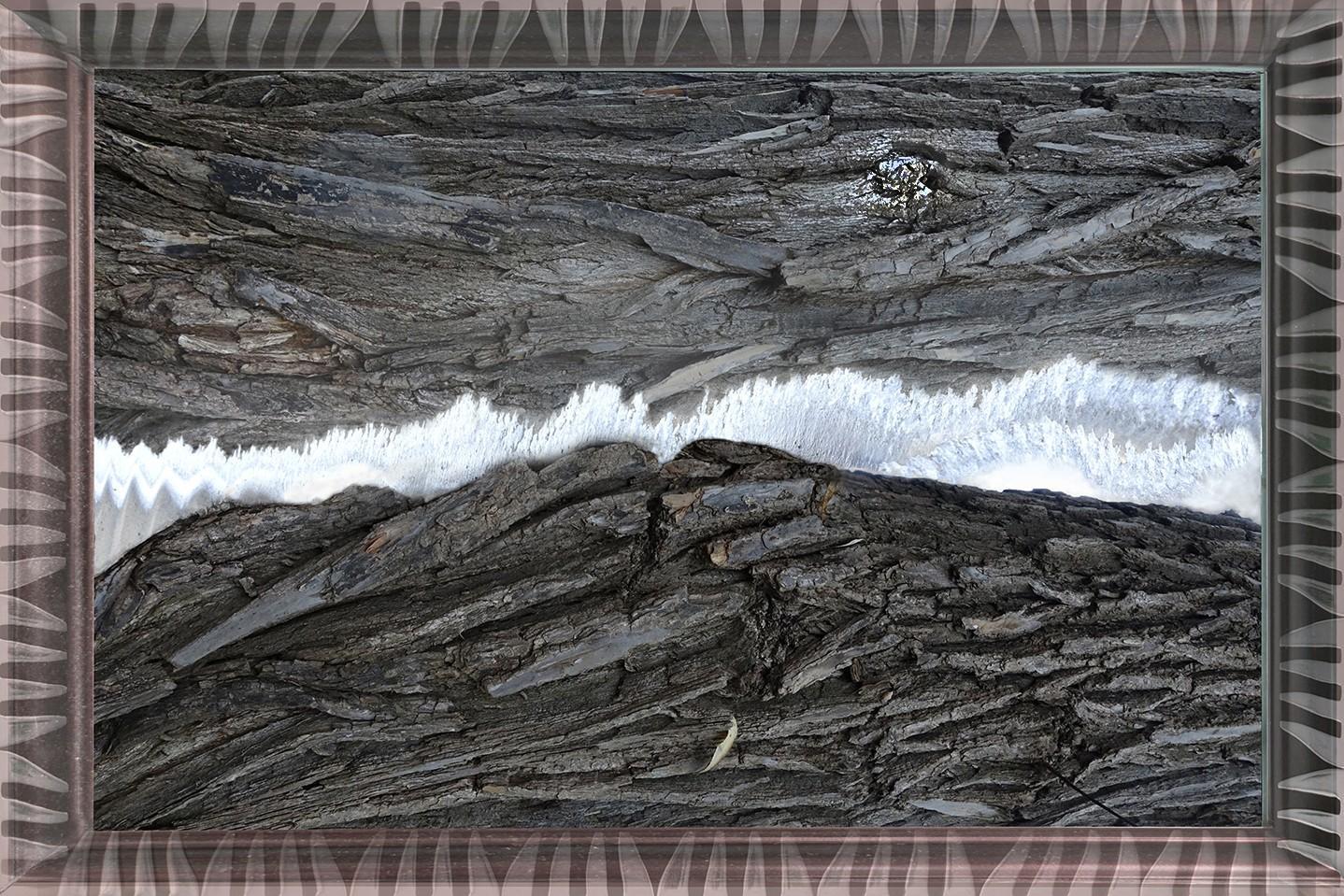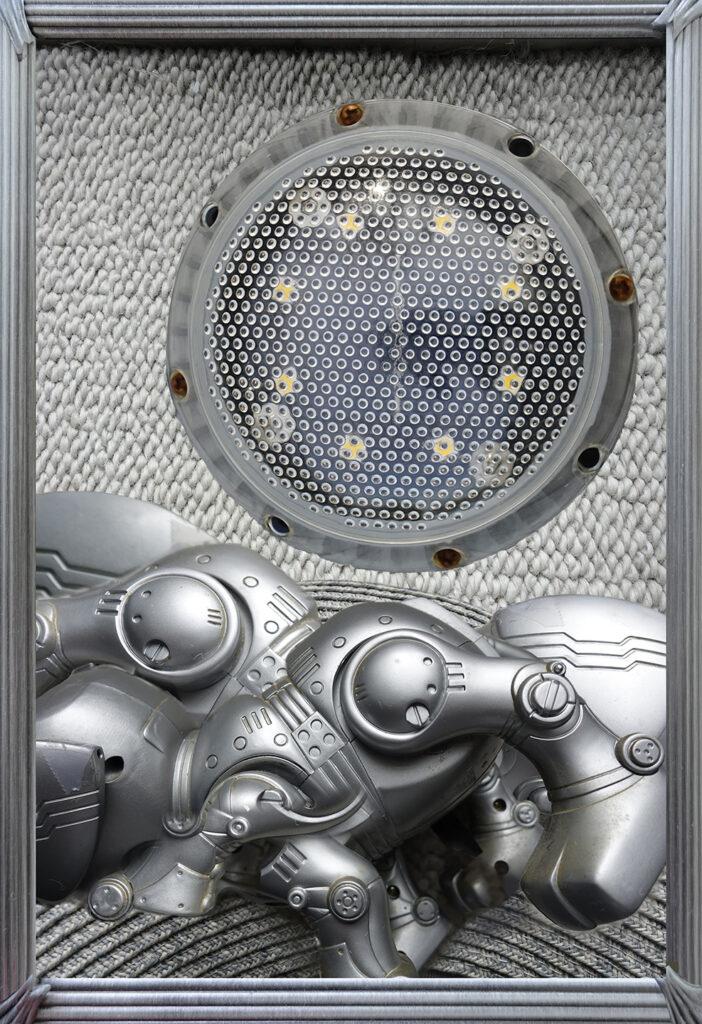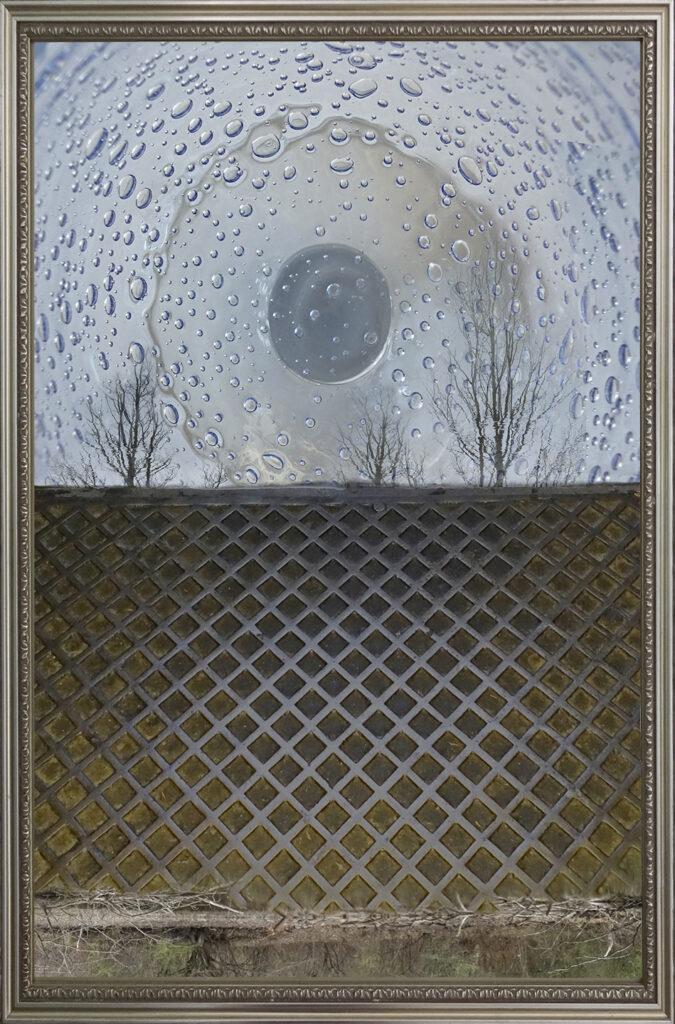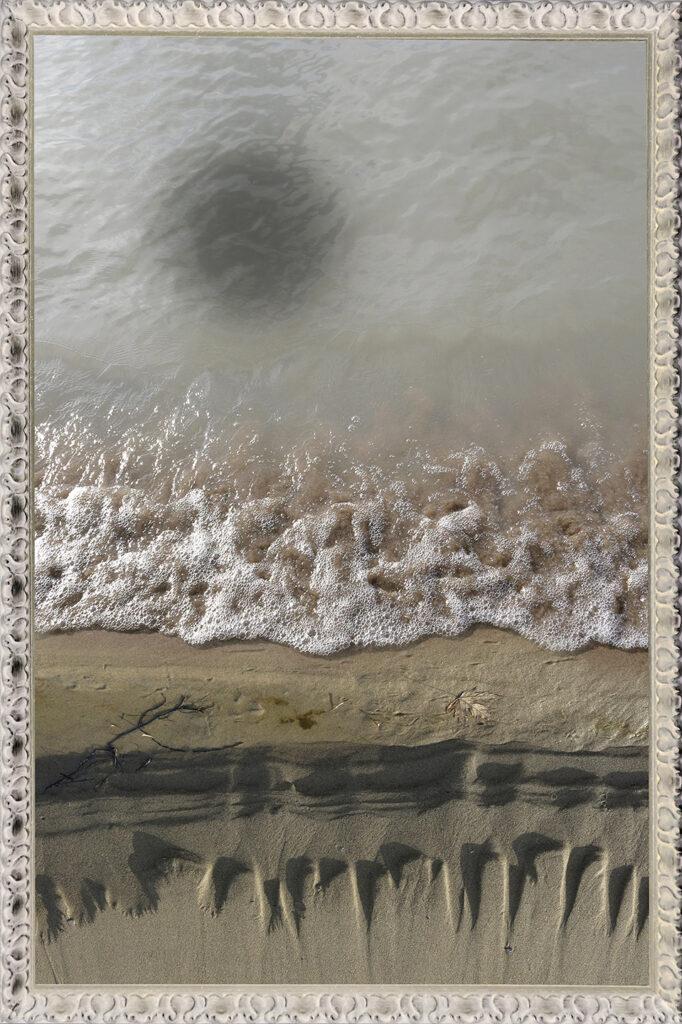Tag Archives: dealing with depression
Altered Horizons 3
My daughter was the texture in my life. Our relationship was a rocky one: gravelly and spongy, sticky and slippery, blistering and subdued, grating and yet grooving. She could make me bristle with rage; she could make me sparkle, percolating with pride. She dented me. And she melted my heart to oozy mush when she smiled at me, her eyelids iridescent with smoky pearl shadow.
When my daughter died my grief was heavy frozen concrete. For a long while, I gathered up feathery flea-bits of memories from the dark depths of sorrow. There was no sense to be found. Only things. The stuff she left behind. Jagged shards, shiny trinkets, and fuzzy stuffed things. What they looked like, what they felt like, and how they made me feel. It’s the texture of life that still keeps me engaged. Believing there’s peace and beauty yet to be discovered, I watch the sky for the next super moon, to witness its light kissing the world below.
Altered Horizons 2
When I first started concocting these landscapes, I photographed and rearranged only natural elements. Clouds, sand, rock, moon, trees, water…. But soon I began adding photos of not-so-natural things with intriguing textures that reflected the light in appealing ways. The sky in this scene is taken from the inside of a glass goblet I received as a wedding gift almost half a century ago. The glass reminded me of falling rain or tears, and looking through to the bottom where the stem of the glass is attached, I found an eclipsed sun. Over the sky I added a layer of wavy reflections of young trees from around my pond, turning them upside down to upright them, making them grow anew from a metal lattice grill. The grill panel was photographed years ago when I visited the Old Melbourne Jail, one of Australia’s oldest surviving structures. I wanted to capture something from the original building. How many prisoners had noticed that same grillwork on the wall near the hanging place, I wondered?
At the very bottom of the scene there is a shallow stretch of Cayuga Lake shoreline from a point in Ithaca’s Stewart Park where, decades ago, swans used to swim. The swans are history now. Everything here is history or has a history. Marrying these images together into a fabricated world is, for me, like holding the past, like bringing it back to life. If I were to give names to all my Altered Horizons, I would call this one ‘Resurrected’ since so many of the elements I’ve toyed with here were dragged up from the depths of my closets and files and memories— and given new life.
Altered Horizons 1
When my life was upended by loss, I had to redefine myself and re-find my footing in the world. For a long time it took every bit of my energy just to keep myself right-side up. But, although my equilibrium was shattered, I discovered a strange fascination in playing with the up-rightness and stability of everything else around me. In my head, I flipped my surroundings upside down, inside out and helter-skelter, imagining new microenvironments. In a desperate attempt to rebuild stability and balance in my own life, I found myself concocting uncanny otherworldly landscapes.
A landscape, in its bare bones, consists of a sky that may or may not include a sun or a moon, and a ground that may be land or a body of water. The horizon line is the place where the sky meets the earth or touches the sea. It’s the horizon that intrigues me most because that’s the place in-between, where change happens, where all sorts of things are possible. The horizon is the farthest the eye can see. It is the limit or range of one’s experience, knowledge, or interest. The horizon also refers to the foreseeable future. Which is something I doggedly try to control these days.
Digital photography and Photoshop make it easy to indulge in this crazed fabricating of other worlds. It’s all based on reality as I photograph mostly natural elements with intriguing textures. Dropping the photos into Photoshop, I turn trees on their sides to become foregrounds. Oceans become skies. The sun is inverted into a black hole. A rock turns into the moon and an avocado becomes the sun. The tools in Photoshop allow me to invert foregrounds and backgrounds, and invent artificial horizons for these contrived landscapes.
Towards the end of designing each new scene, I build a frame around it. This part of the process is so satisfying. Therapeutic even. It’s like building a nest and carefully wrapping the whole thing up to contain it. To keep it cozy. And secure.
I call these Altered Horizons. Because everything in my life has been altered, changed to some different reality. Not by choice. But in these landscapes I can choose and control—A Someplace. A No-Place—Maybe you would say this is a fool’s-eye view of the world.
Grief is a Grinch
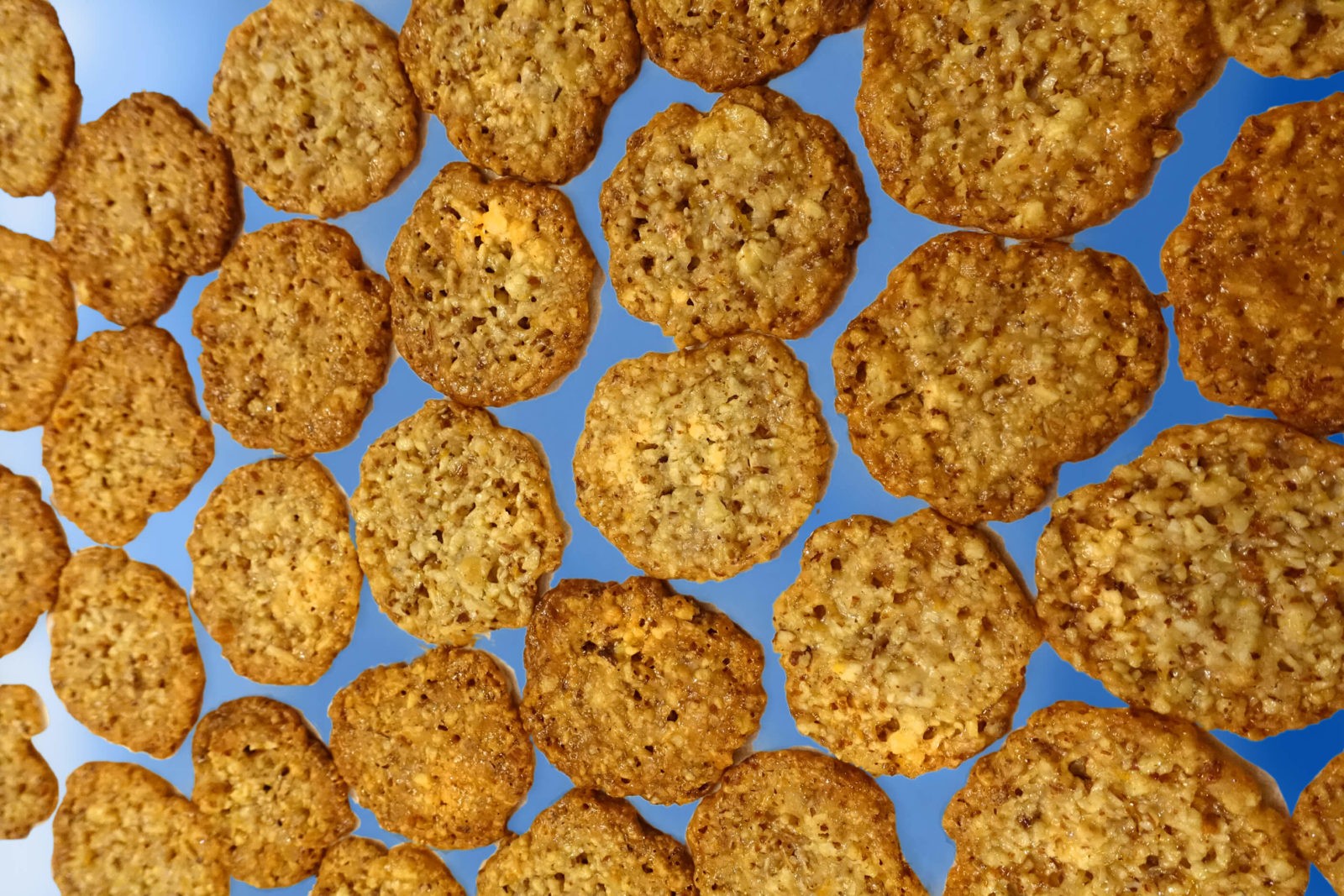 “And I’m invited too?” I demanded of my friend when I learned that she and my other best friend were going to bake cookies together on Saturday. Not usually this bold, I was following three of the Holiday Tips for Grievers I’d found online: “Take breaks from your grief,” and “Don’t isolate yourself,” and “Tell people what YOU want to do for the holidays….” So I invited myself.
“And I’m invited too?” I demanded of my friend when I learned that she and my other best friend were going to bake cookies together on Saturday. Not usually this bold, I was following three of the Holiday Tips for Grievers I’d found online: “Take breaks from your grief,” and “Don’t isolate yourself,” and “Tell people what YOU want to do for the holidays….” So I invited myself.
All over the Internet, bereaved and depressed people can find advice on how to deal with the holiday season. “Take care of yourself.” “Be honest. Listen to your heart and be mindful of your own needs.” “Do what feels right for YOU.” “Protect your physical and psychological energies.” During this time, online publications from Huffington Post to whatsyourgrief.com essentially grant sufferers permission to turn into self-centered, entitled grinches.
I don’t even like cookies. But I do like being in the kitchen when my friends are cooking. I will wash a million dishes in order to watch friends make extraordinary food. Also, my daughter who died liked to bake. So on Saturday, I helped stir and pour batter, and cleaned dishes. All afternoon we sampled fresh warm cookies as they came out of the oven. And we talked, sipping on scotch and wine.
I listened to various complaints about daughters doing things or not doing things, and thought, My Marika used to mess the kitchen up miserably when she baked cookies. There was also proud praising of the same daughters. Marika made the best cream cheese-frosted carrot cake. If Marika were still alive … I thought to myself. I tried not to mention my own daughter out loud. Because these were my old beloved, “regular” friends, not the newer friends who are other bereaved mothers who understand the need to talk about my daughter, to hear her name. A holiday tip for grievers suggests you find ways to include your loved ones. I ate another cookie, silently toasting Marika.
Then the discussion turned to someone else’s daughter who was recovering from physical problems and wouldn’t be able to play sports for a whole year. That’s when, no longer able to contain my physical and psychological energies, being honest with myself and mindful of my own needs, and doing what felt right for ME – I said, “Well at least she’s still alive,” – and effectively ended all conversation.
How have you grinched-out during the holiday season? Did you decorate? Or did you decide it was time to let dirty dishes hang out on the counter-tops?
